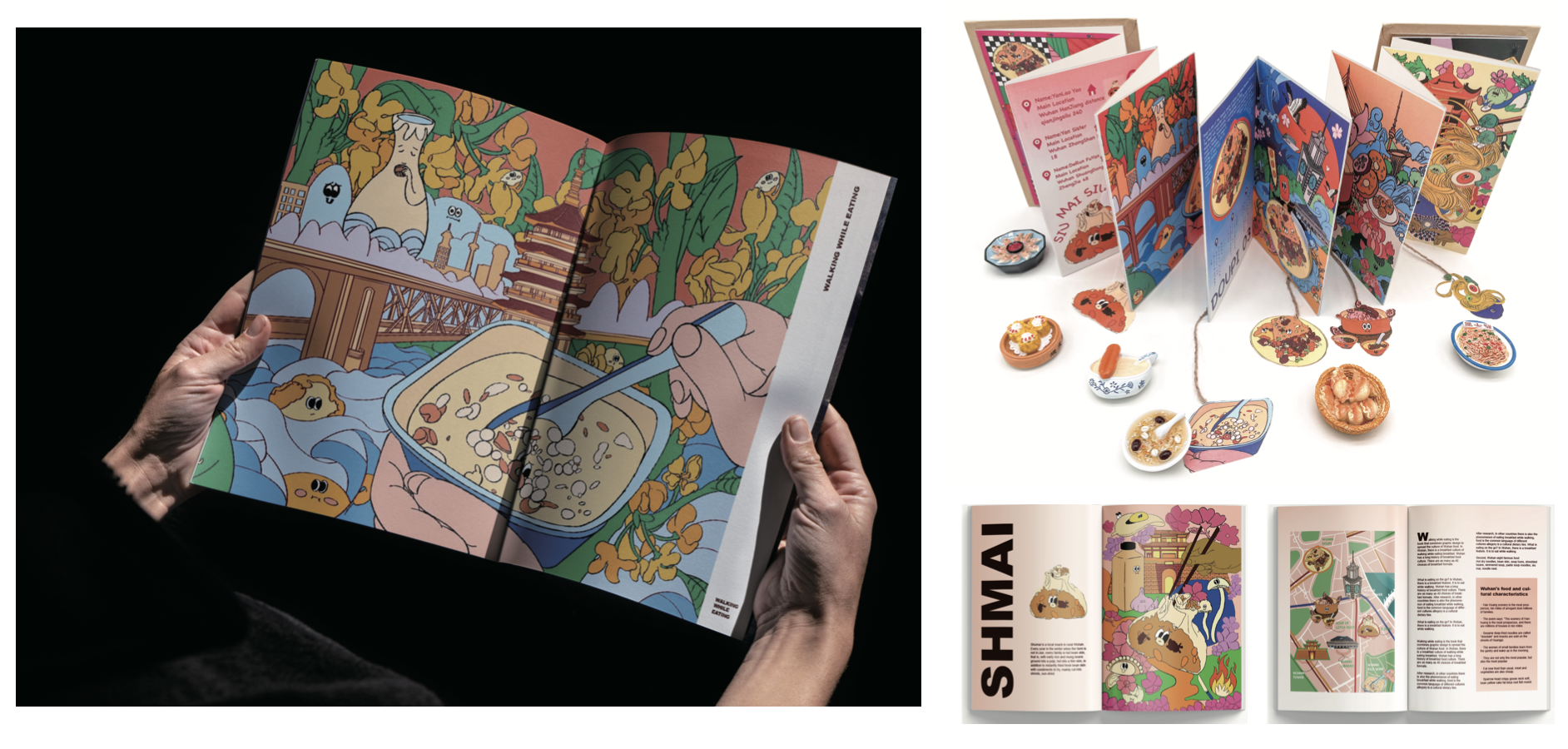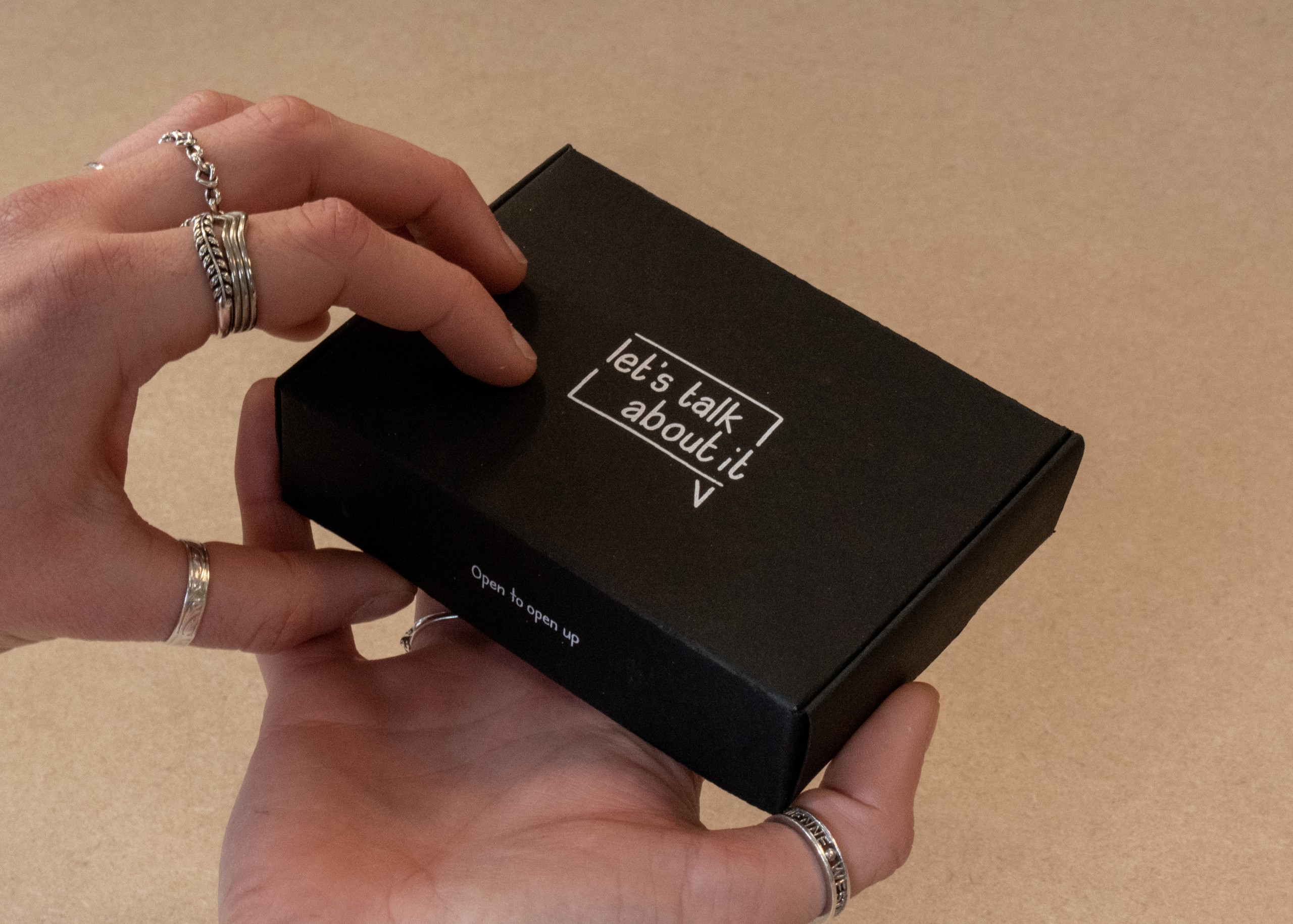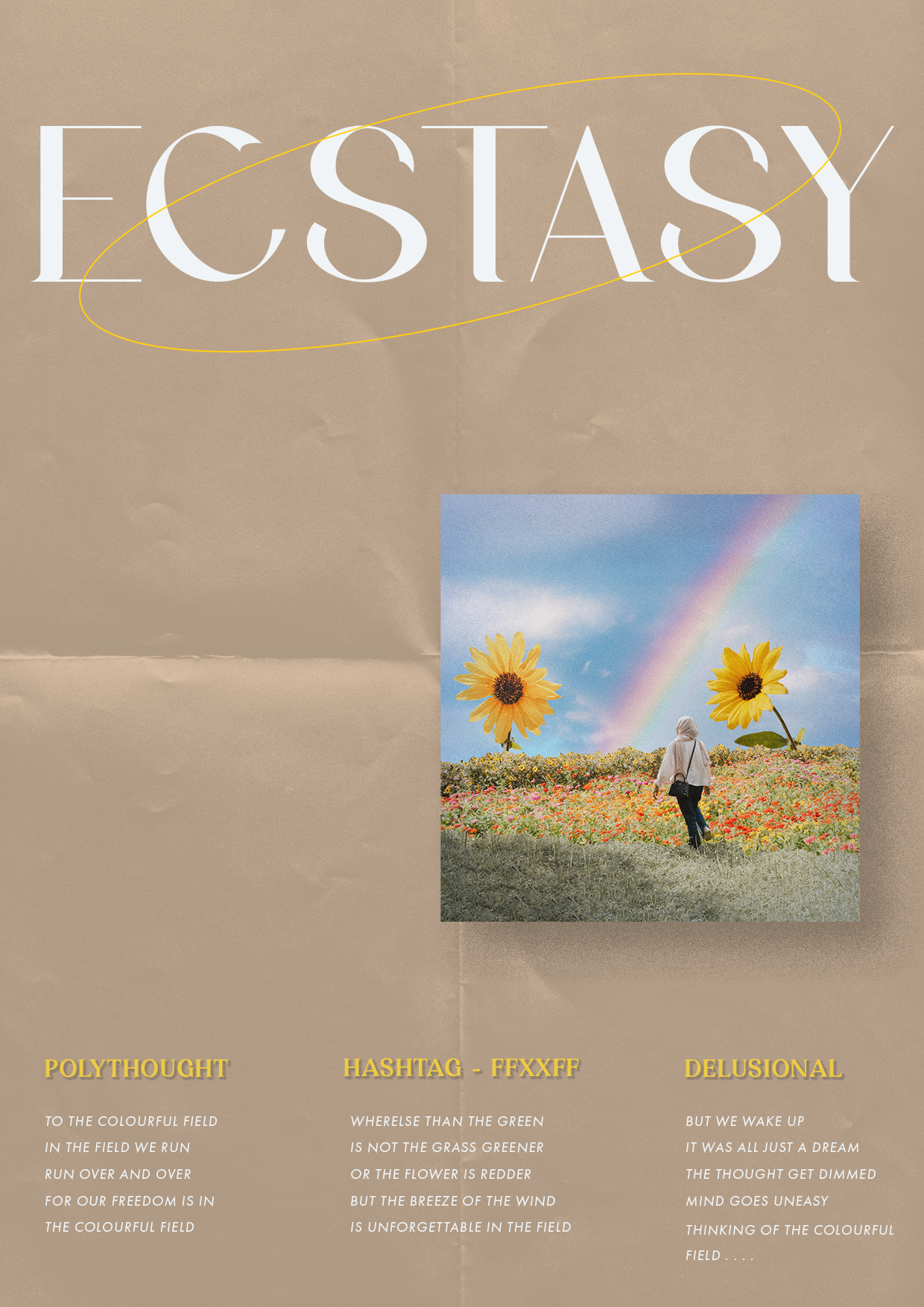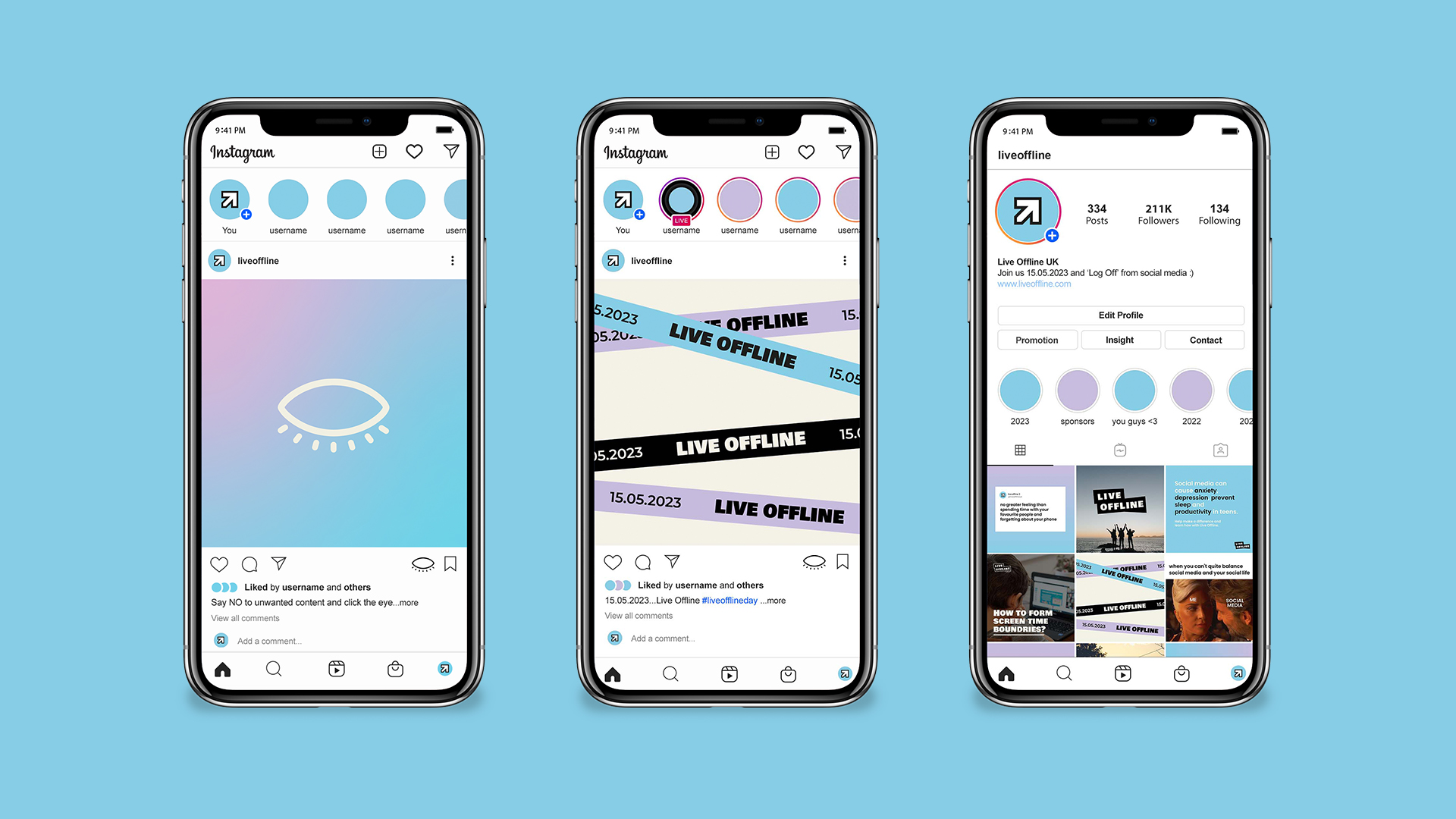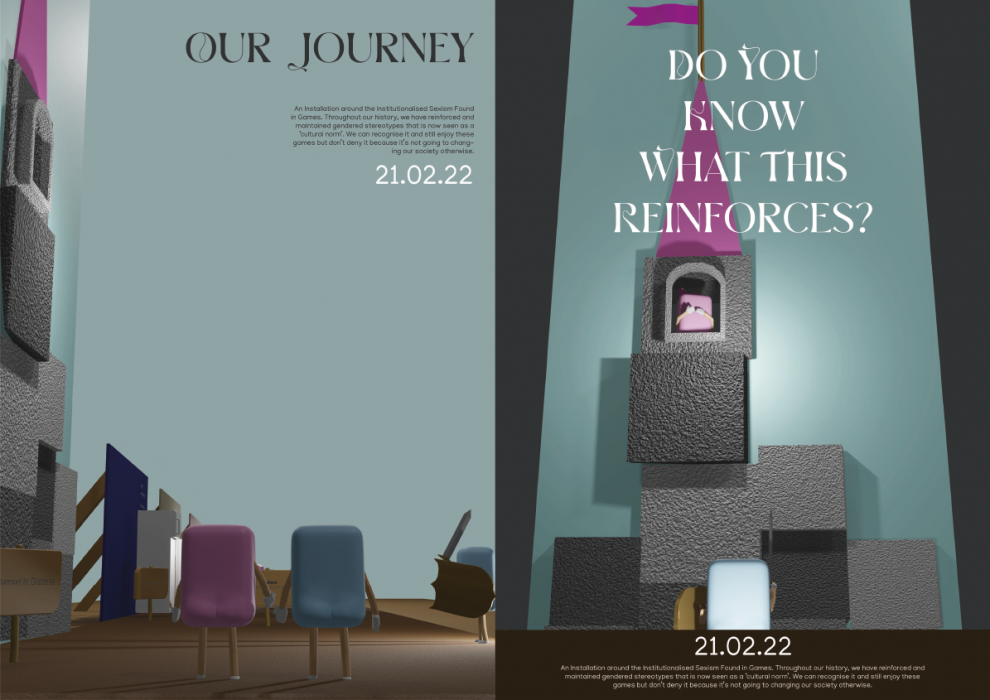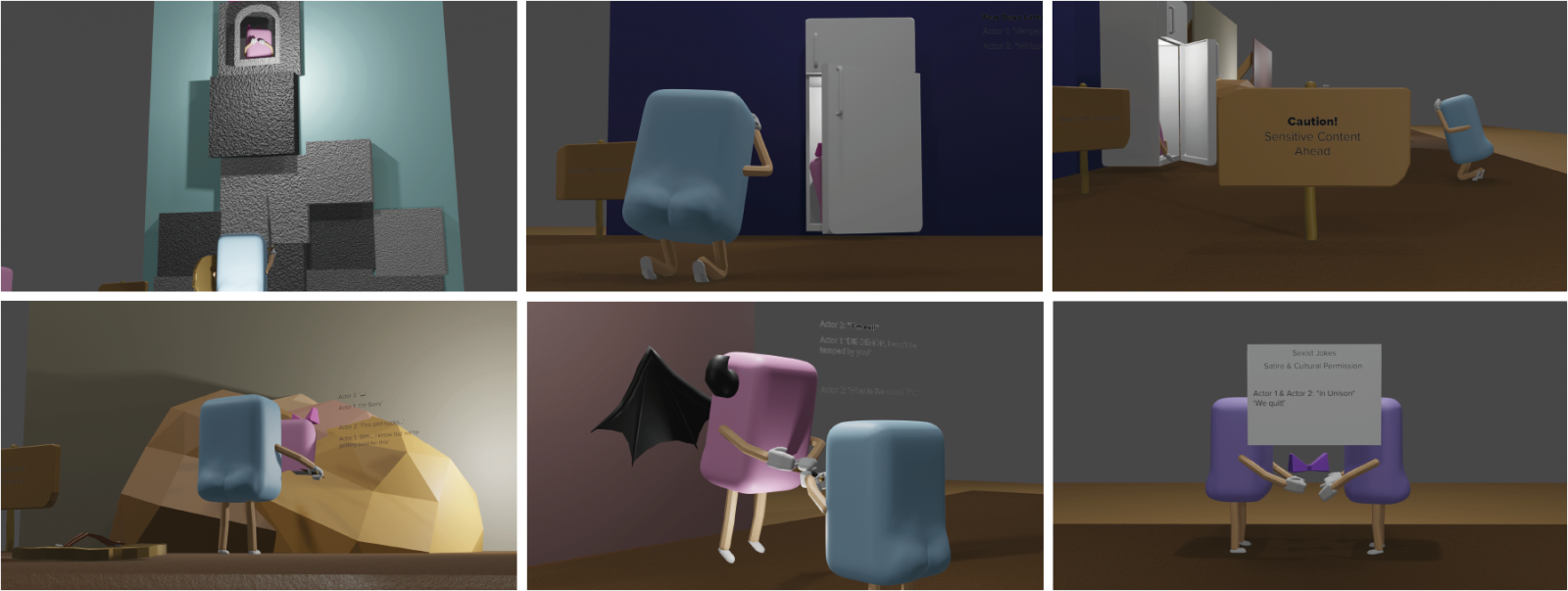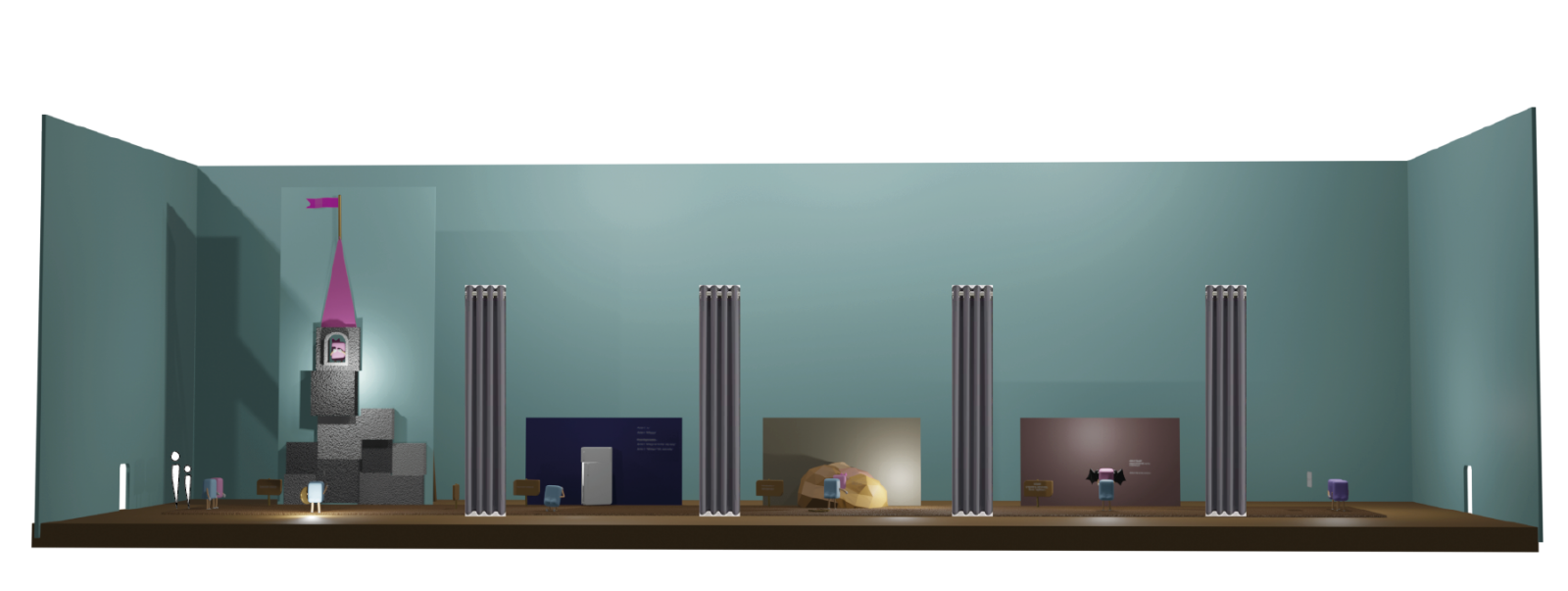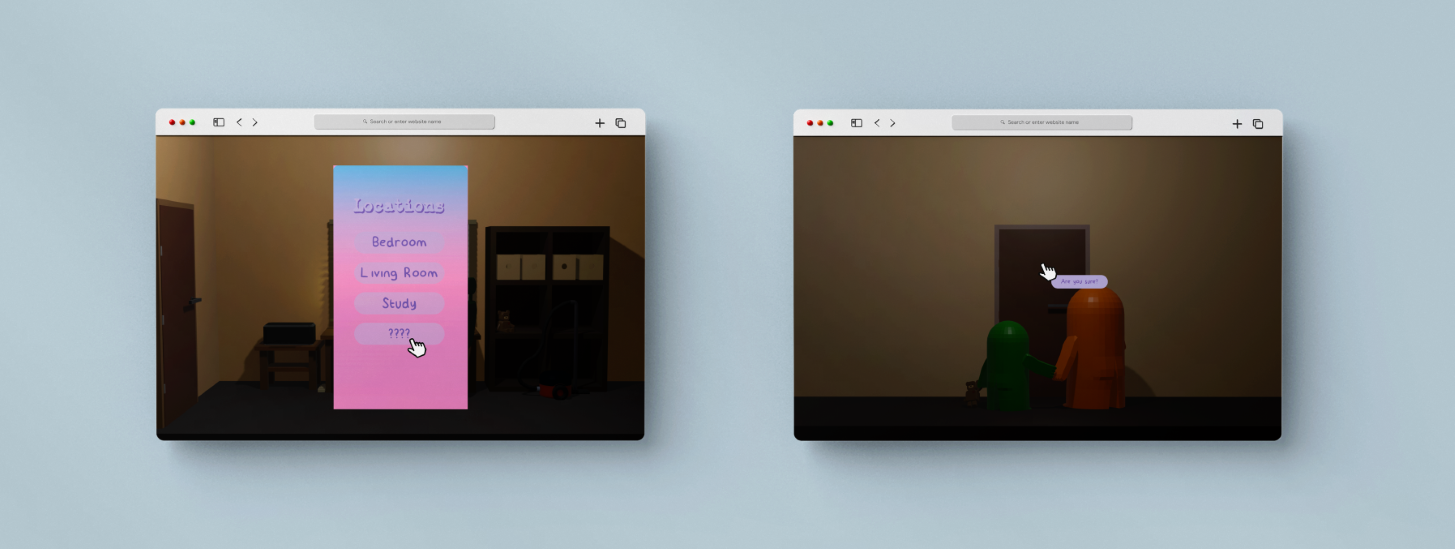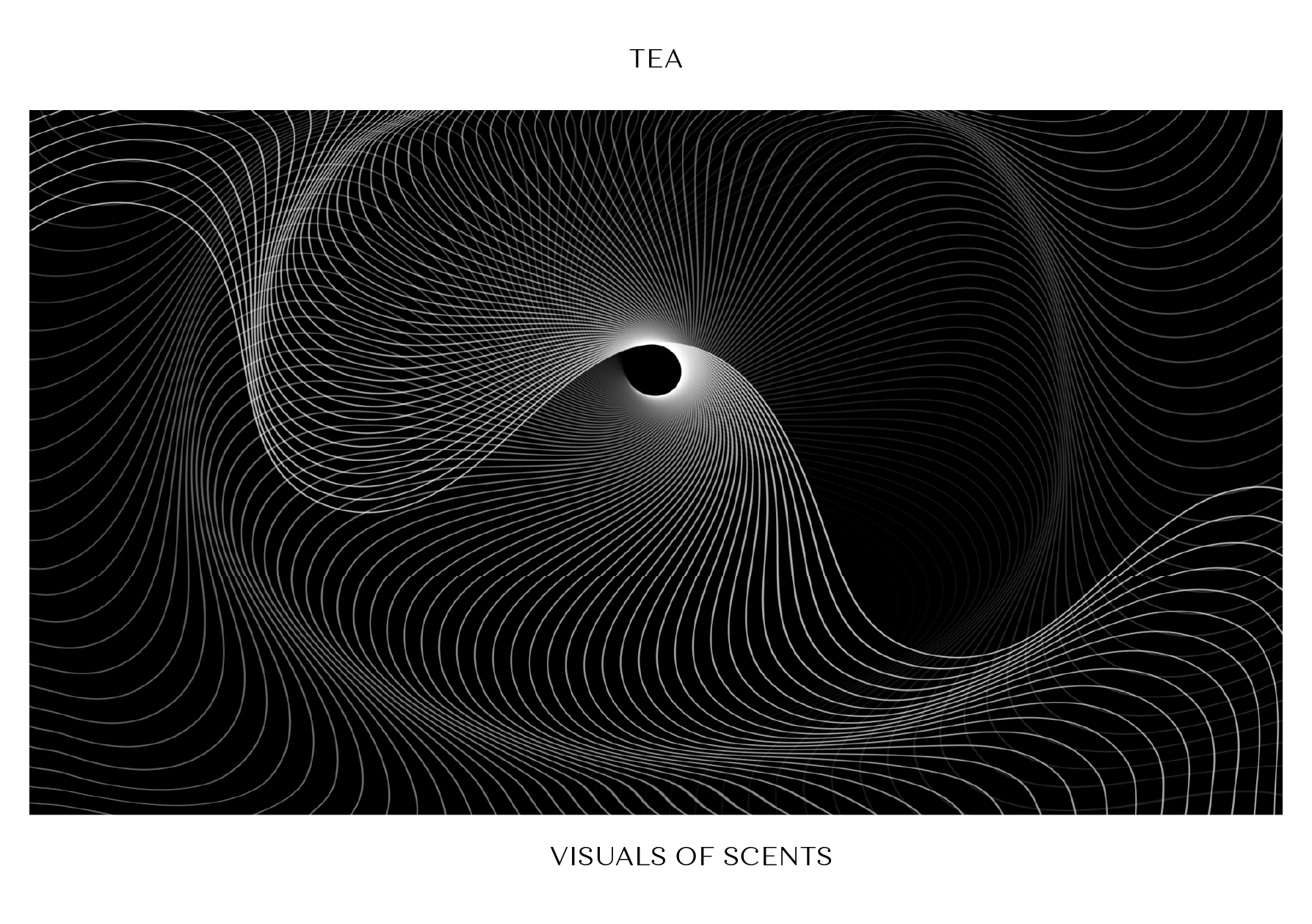
Ruby Cheng’s project Institutionalised Sexism Found in Games is on the institutionalised sexism found in mainstream videogames such as Mario, Legend of Zelda, and Resident Evil. Through a series on ‘Tropes Vs. Women’ narrated by Anita Sarkeesian in Feminine Frequency, Cheng was able to learn, recognise and still appreciate videogames. She created this installation to inform families about how these games are reinforcing, and maintaining, harmful gendered stereotypes, and that we should learn to break this vicious cycle. The installation uses suspended dialogue for context, and dividing curtains to give caution, as well as challenge parents to proceed. In each scene, Cheng has depicted the overused plot exploited by the game industry, with the damaging stereotypes of both genders, which transfers over in today’s society.
Cheng’s project Digital Emissions Game Concept aims to teach mobile, PC and console players about digital emissions, through an educational and interactive game. Through this she hopes to raise awareness, and give the individual a chance to make an impact without the need for significant influence. The game concept is set in a domestic environment such as a home with a bedroom, study and living room where the player can control a character, ‘Orange’ to interact with their world and create their own narrative. The audience learns about digital emissions the further they investigate, and in each room, there is a focus on the illuminated screens of multiple devices. Throughout the game, players can interact with the space with Orange’s sister, ‘Green’, a feature created to influence them to be greener. There is no obvious indicator of whether the game will reach a good or bad ending, but there are audio and visual cues, and a chance to unlock a secret location once the player has triggered a certain number of activities.



